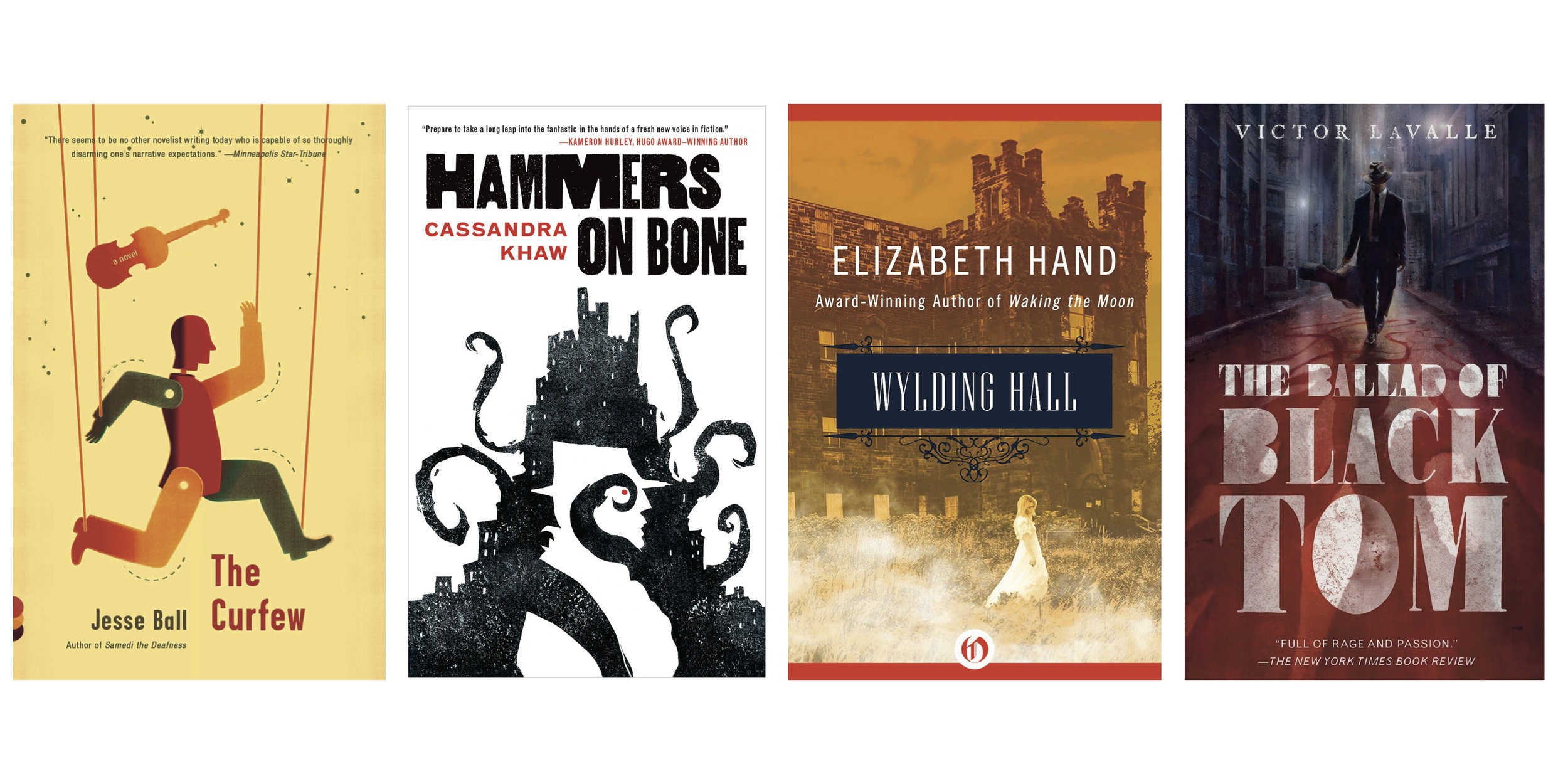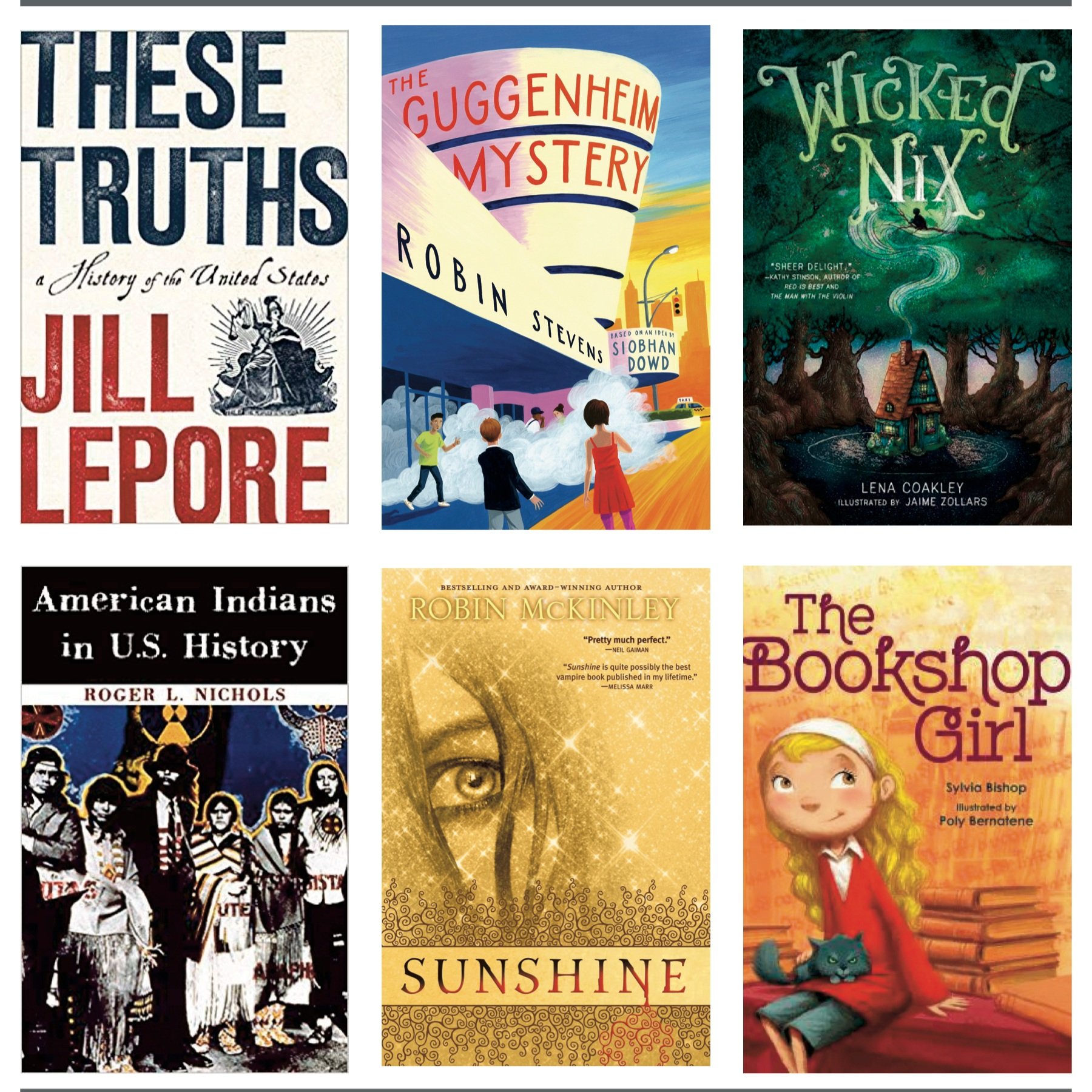Amy’s Library Chicken :: 10.24.18
I’m happy to report that this week’s readerly efforts have paid off in some books I can actually recommend enthusiastically! And Suzanne assures me that if I read Space Opera, everything will be better, so that’s at the top of my list for next week.
The Clockwork Scarab by Colleen Gleason
This was on super-sale for the Kindle this week, and I couldn’t resist rereading it to see if it was as fun as I remembered. Happily, it is — Irene Adler (remember her?) recruits Sherlock Holmes’ niece Mina and Bram Stoker’s little sister Evaline to solve a mystery involving missing society girls, a mysterious Egyptian cult, and an unexpected time traveler. Miss Holmes and Miss Stoker don’t immediately hit it off — Mina is as logical and inflexible as her famous uncle, and Evaline is a pretty, popular young lady (who also happens to be a vampire slayer) — and their gradual grudging respect for each other is well-earned over the course of the book. In their steampunk alternate London (where electricity has been officially banned), the city is both familiar and strange, full of both Victorian conventions about what proper young ladies should and shouldn’t do and new fangled clockwork gadgets and steam guns.
What I loved about this series — aside from all the wink-wink Victorian references, of which I can never get enough — is that Mina and Evaline are such different kinds of feminist heroines, and they tackle the challenges they run into in totally different ways. I also appreciate that their differences mean they don’t instantly become best friends forever. Mina and Evaline really have to work to trust each other, and that reluctance really rings true in a wold where they are so rarely allowed to let their talents shine. They’re not used to being trusted, so learning how to trust someone else — and be trusted by them — is a new thing.
(+0, read it on my Kindle)
The Lost Book of the Grail by Charlie Lovett
I am going to stop reading books that people tell me are “just like Possession” because 1.) they never actually are anything like Possession and 2.) usually I’m so annoyed that they aren’t anything like Possession that I can’t appreciate them on their own merits.
I bet you can guess that I did not love this book. It’s true that it sounds up my alley: Arthur Prescott is a professor of literature at the University of Barchester, but the only thing he really likes is sitting alone at his desk in Barchester Cathedral Library reading old books about the Grail, which he’s been obsessed with since he was a kid. Enter plucky, beautiful (the book makes sure you know she’s beautiful — also kind! funny! smart!) American Bethany, who has come to digitize the library’s collection of medieval manuscripts. It turns out Bethany is obsessed with Grail, too, and together, the two of them discover a clue that may actually lead them to the secret of the Grail’s connection with Barchester.
The books flashes around in time, illuminating little pieces of the history of the Grail and a missing manuscript from the library. I love old manuscripts and literary mysteries as much as the next person — honestly, probably more than the next person! — but this was pretty much a complete miss for me. Part of it is that people talked a lot about manuscripts, but because it’s mostly talking, there’s not really an opportunity for the reader to look for clues of her own, which is part of the fun of this kind of literary mystery. Then there’s the fact that Arthur is just terrible — he’s utterly self-centered, rude to his students and everyone else, uninterested in anything beyond his narrow focus, and oh my gosh, he is the worst professor ever. And Bethany, who falls in love with him, rarely feels like more than Archivist Barbie — she’s a catalogue of attractive qualities that never add up to a real person.
The solution to the mystery is fine, but there’s a big twist to Arthur’s character that we’re supposed to believe without any evidence at all that anything about him has changed to make him such a completely different person.
Honestly, I’m still mad at this book, so I should just stop now.
(+1, thank goodness because I would be so angry if I read this and didn’t get a point for it)
#MurderTrending by Gretchen McNeil
I don’t even know where to start with this. In a not-too-distant future, convicted criminals who have received the death penalty get shipped to a Survivor-style town, where they work minimum-wage jobs, hang out with their fellow criminals, and get hunted down on live television by celebrity assassins. Dee didn’t murder her stepsister, but she was convicted anyway, and pretty teenagers are always popular additions to the cast of Alcatraz 2.0.
There’s no real character development in Dee or her friends in the Death Row Breakfast Club (I’m not making that up), and while the serial killers’ murderous methods are described in gory, painstaking detail, there’s no real character development on that end either. I wouldn’t mind that so much if the plot held together, but it’s such a crazy mess: Wait, this whole thing has always been about Dee and getting Dee specifically to Alcatraz 2.0? Doesn’t that seem a little — complicated? — for a revenge scenario? I mean, there are actual laws that had to get through Congress to make this happen, which seems like a lot of work to get revenge on one teenage girl. How many years would that take? Did this whole plan start when Dee was in kindergarten?
I’m on board for a good accused-criminal-proving-her-innocence arc, and I’ll happily ruminate on the evils of reality of television, but this book was a mess. Which maybe would have still been okay if it had been an entertaining mess. Alas, it was not.
(+0, advance copy)
My Name Is Victoria by Lucy Worsley
I am currently watching Victoria, so I was definitely ready to hate on Sir John Conroy for a while. He is definitely the villain of the piece from the moment he makes his daughter (named Victoria) give her beloved puppy as a gift to the future Queen Victoria. Not long after, he drags his daughter — who must now be called Miss V. so no one confuses her with the princess —to be Victoria’s companion. Sir John wants Miss V. to report back on Victoria’s emotional state, but Miss V. finds herself growing fond of the princess, who is really just a lonely girl kept in isolation by the people who want to control her. Miss V. and Victoria are both stuck in situations created by their controlling guardians, but they forge a cautious friendship — after all, they could always be spying on each other — that blooms into a lovely, supportive relationship.
I loved the historical details, and it wasn’t at all surprising to discover that the author is a curator at Kensington Palace, which is where Victoria grew up — this reads like a book written by someone immersed in Victoria’s early life. And while the twist ending may be a little surprising, it’s also kind of delightful to be thrown by something unexpected in a world that we think we know so well.
If you’re in the mood for a historical YA, you could do much worse.
(+0, advance copy)
The Mortification of Fovea Munson by Mary Winn Heider
This is a weird little book, but that’s not a bad thing. Seventh-grader Fovea works part-time in her parents’ cadaver lab, which is weird. Her parents tell a lot of random body parts jokes, which is weird. And three defrosting disembodied heads have started talking to Fovea, which is very weird.
Just go with it: The wacky premise is the price of admission for a screwball comedy that’s worth reading. Those heads need Fovea’s help — and, as it turns out, she needs their help, too — kicking off a series of hijinks that will have you laughing out loud. This was a surprisingly light, fun readaloud.
(+0, advance copy)
A Circle of Quiet by Madeleine L’Engle
Every few years, I reread this book, which is basically a memoir L’Engle published in 1971. I always seem to find something that I need in it; this time, I started crying when I read: “We can surely no longer pretend that our children are growing up into a peaceful, secure, and civilized world. We’ve come to the point where it’s irresponsible to try to protect them from the irrational world they will have to live in when they grow up. The children themselves haven’t yet isolated themselves by selfishness and indifference; they do not fall easily into the error of despair; they are considerably braver than most grownups. Our responsibility to them is not to pretend that if we don’t look, evil will go away, but to give them weapons against it.”
(+0, from my shelves)
This Week: +1
Running Score: +6
(We’re Amazon affiliates, so if you purchase something through an Amazon link, we may receive a small percentage of the sale. Obviously this doesn’t influence what we recommend, and we link to places other than Amazon.)





































AMY SHARONY is the founder and editor-in-chief of home | school | life magazine. She's a pretty nice person until someone starts pluralizing things with apostrophes, but then all bets are off.